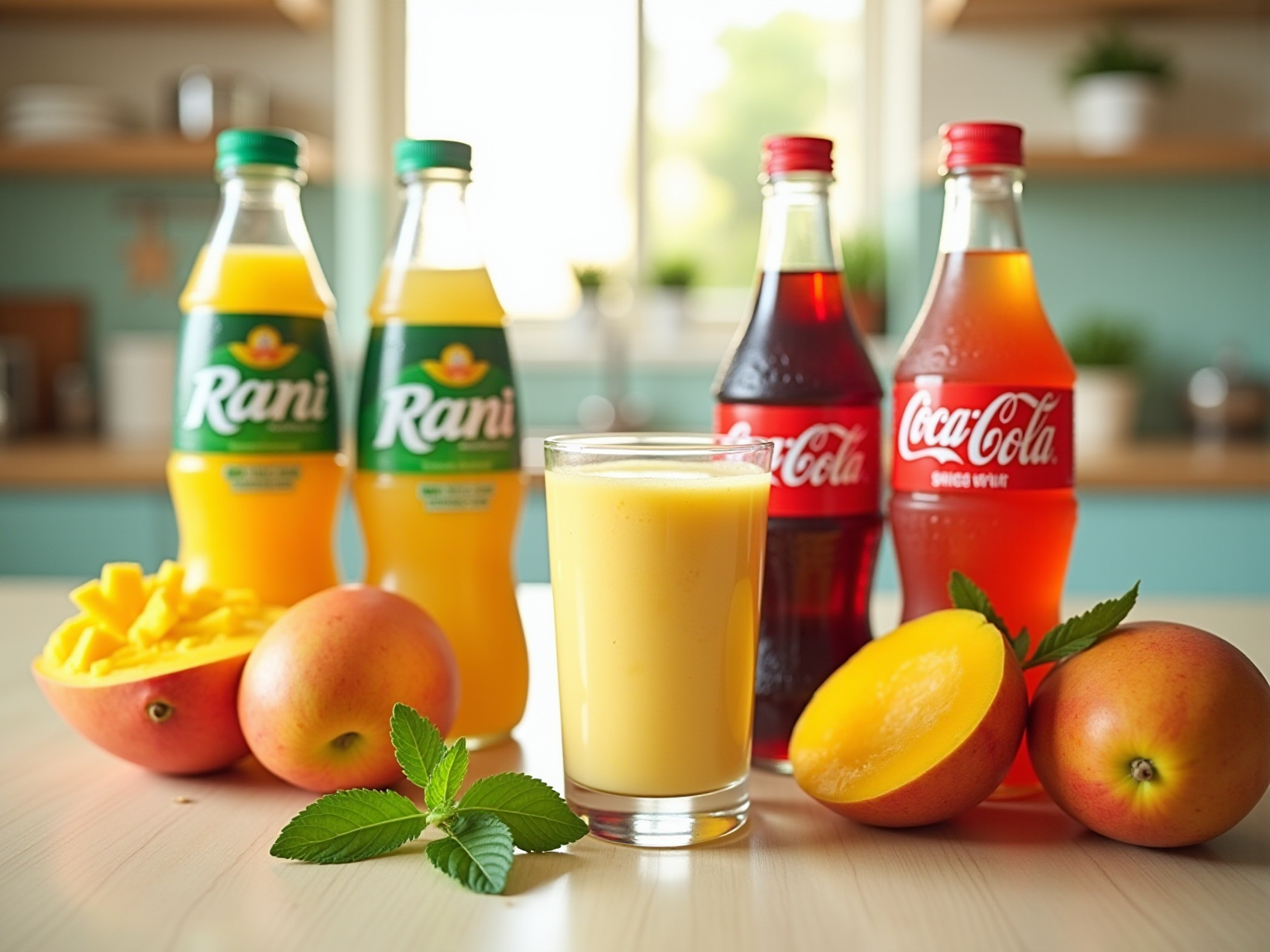General
Behavioral Science Applications in Marketing for the Food and Beverage Sector in Saudi Arabia
Overview
The article examines how applications of behavioral science can significantly enhance marketing strategies within the food and beverage sector in Saudi Arabia. By offering valuable insights into consumer behavior, preferences, and motivations, it posits that brands can leverage these insights through targeted marketing initiatives. This includes:
- Digital strategies
- Sustainability messaging
- Social media engagement
- Personalization techniques
Such an approach not only fosters customer loyalty but also drives sales in an increasingly competitive market.
Introduction
In the rapidly evolving food and beverage sector of Saudi Arabia, understanding and adapting to consumer behavior is essential for survival. Brands must capture the attention of a discerning audience, leveraging insights into purchasing patterns and preferences to develop effective marketing strategies. This landscape is rich with opportunities, from targeted digital campaigns that resonate with younger, convenience-seeking consumers to the integration of sustainability messaging that appeals to eco-conscious shoppers.
Engaging consumers through innovative social media strategies and personalized experiences not only enhances brand loyalty but also drives sales. This article delves into the multifaceted approach that food and beverage brands can adopt to thrive in a competitive market, exploring key strategies that cater to the modern consumer’s values and preferences.
Utilize Consumer Behavior Insights for Targeted Marketing
In the competitive landscape of the food and beverage sector in Saudi Arabia, leveraging behavioral science applications in marketing is essential for gaining insights into buyer behavior. By analyzing purchasing patterns, preferences, and motivations, brands can create targeted marketing strategies that resonate with consumers.
For instance, recognizing that younger individuals favor convenience can lead to effective promotions for ready-to-eat meals or delivery services. Additionally, employing tools such as surveys and focus groups provides deeper insights into customer perspectives, enabling companies to refine their messaging and product offerings efficiently.
Research indicates that companies utilizing behavioral science applications in marketing, which align their strategies with buyer behavior, experience a notable rise in customer loyalty and sales. This approach not only enhances brand engagement but also drives sustainable growth in a competitive market.
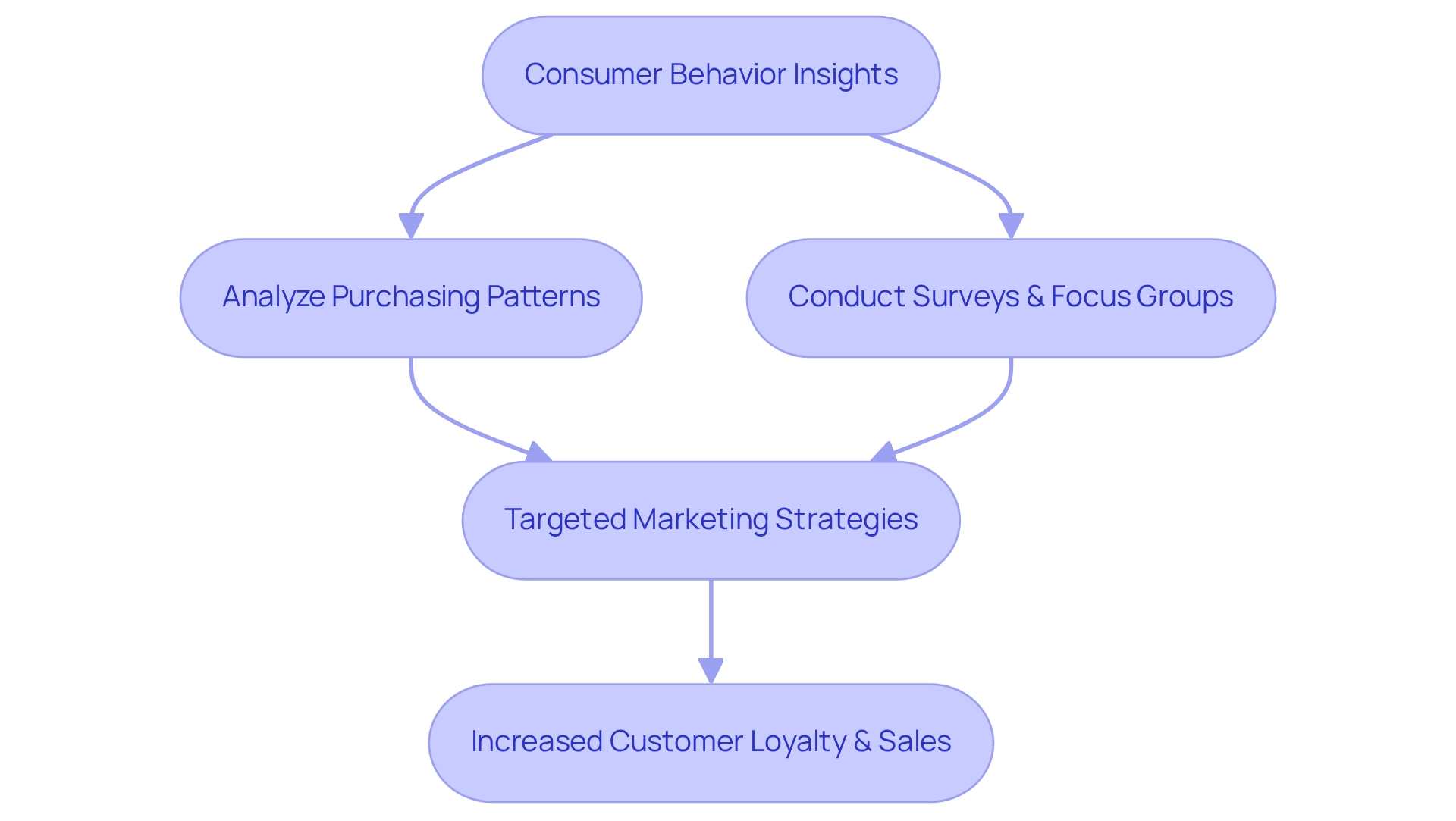
Leverage Digital Marketing Strategies to Influence Purchase Decisions
In the food and beverage sector of Saudi Arabia, the application of behavioral science in marketing, coupled with digital marketing strategies such as search engine optimization (SEO), pay-per-click advertising, and social media marketing, plays a crucial role in influencing purchase decisions. As consumer eating habits evolve, it is imperative for companies to adapt their advertising strategies to resonate with the contemporary preferences of buyers. By leveraging targeted advertisements on platforms like Instagram and Facebook, businesses can effectively reach specific demographics, presenting their products in visually compelling formats that align with current trends.
Central to this approach are effective media planning and media buying, which ensure that advertisements are strategically positioned for maximum impact. Additionally, the production of captivating content—characterized by high-quality images and videos—enhances visibility and fosters a deeper connection with customers. Employing data analysis to track customer interactions enables companies to refine their strategies and boost conversion rates. For instance, recent studies indicate that meal delivery applications are gaining traction in Saudi Arabia, signaling a shift towards online ordering that brands can capitalize on through the strategic application of behavioral science in their marketing efforts.
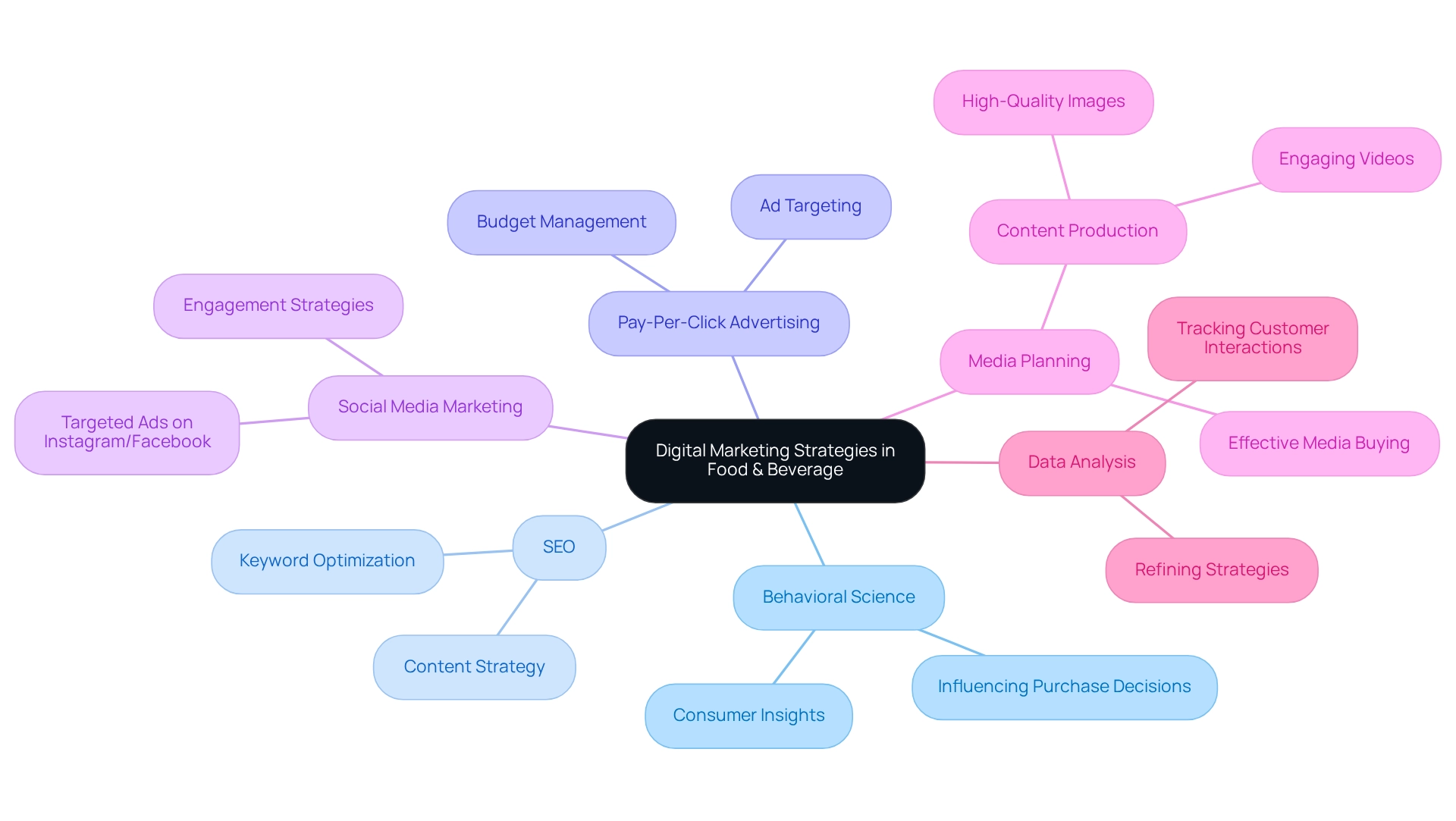
Incorporate Sustainability Messaging to Attract Eco-Conscious Consumers
Integrating sustainability messaging into marketing strategies is essential for appealing to environmentally aware individuals in Saudi Arabia’s food and beverage industry. Brands can effectively communicate their commitment to sustainable sourcing, eco-friendly packaging, and waste reduction practices. Transparent labeling that emphasizes sustainability initiatives resonates with individuals who value environmental responsibility.
Studies show that 71% of individuals are more inclined to interact with companies that align with their values, highlighting the impact of both analog and digital experiences. Remarkably, companies such as Almarai have effectively executed sustainability initiatives, greatly improving their public image and promoting customer trust.
Furthermore, WonderEight’s partnership with Quaker Oats illustrates how a strategic marketing plan can successfully incorporate sustainability messaging, resulting in enhanced market presence and brand recognition. As the market evolves, adopting eco-friendly practices not only satisfies customer demand but also positions companies as leaders in a competitive environment.
To further improve their approaches, managers should evaluate their current sustainability messaging and investigate creative methods to align with buyer values, ensuring they remain relevant in this evolving market.
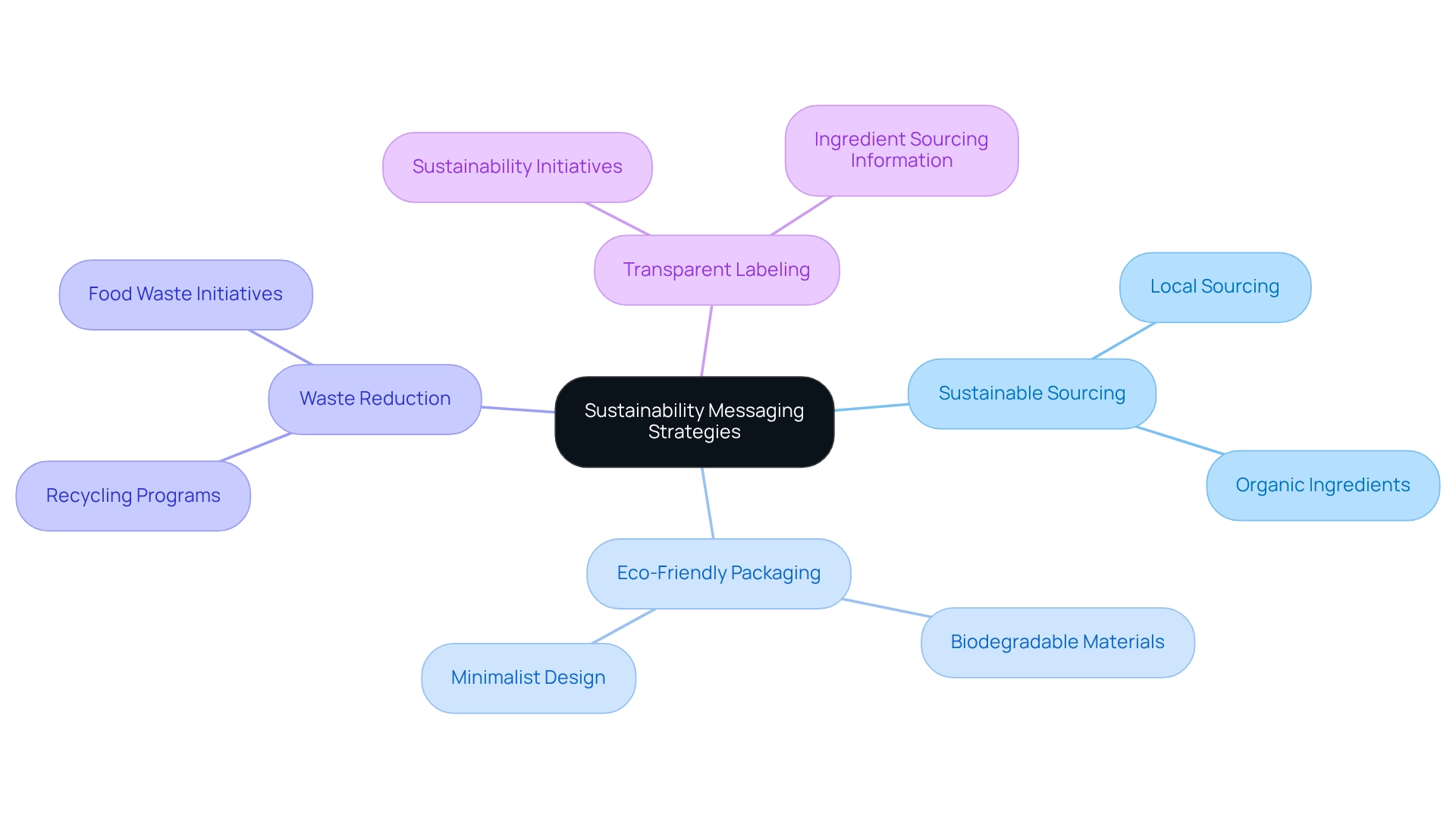
Engage Consumers Through Social Media Campaigns and Influencer Partnerships
Engaging consumers through social media campaigns and influencer collaborations represents a formidable strategy for beverage companies. By leveraging platforms like Instagram and TikTok, companies can showcase their products in innovative ways, while partnerships with influencers enhance both reach and trustworthiness.
For instance, collaborating with local culinary influencers to promote new menu items or seasonal offerings not only drives traffic but also boosts sales. Moreover, interactive campaigns—such as contests or user-generated content—foster community involvement and cultivate customer loyalty.
A study reveals that brands effectively utilizing social media experience a significant increase in customer engagement and brand recognition.
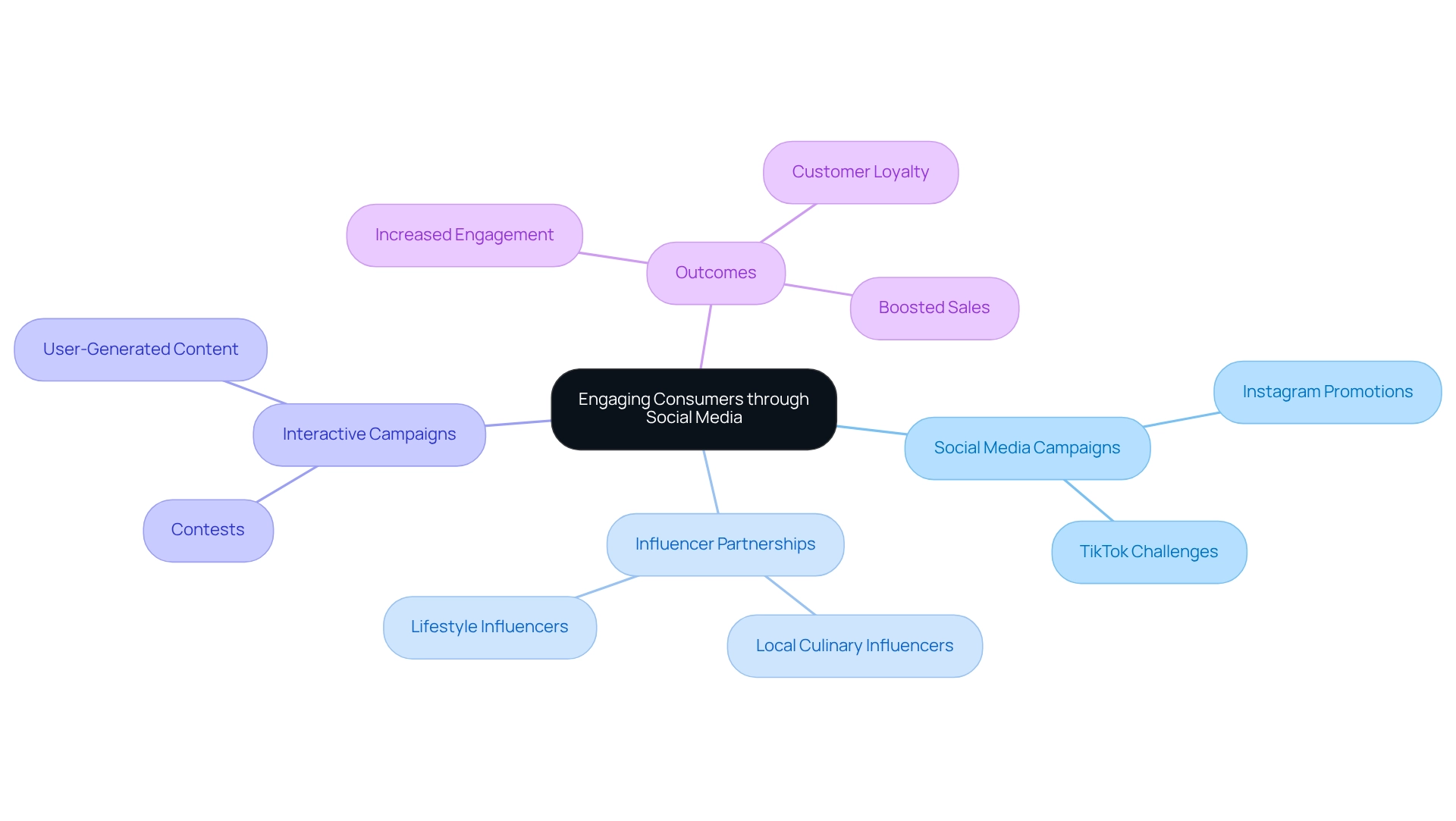
Implement Personalization Techniques to Enhance Customer Experience
Enhancing customer experience in the food and beverage industry is paramount, particularly through the implementation of personalization techniques grounded in behavioral science applications. In the context of Saudi Arabia’s food and beverage sector, brands can leverage data analytics to gain a profound understanding of individual customer preferences, thereby tailoring their offerings accordingly.
For instance, personalized recommendations based on past purchases can not only significantly enhance customer satisfaction but also drive increased sales. Moreover, loyalty programs that provide personalized rewards serve as a catalyst for encouraging repeat business.
Research consistently indicates that consumers are more inclined to engage with brands that acknowledge their unique preferences, positioning personalization as a critical strategy for success in today’s fiercely competitive market.
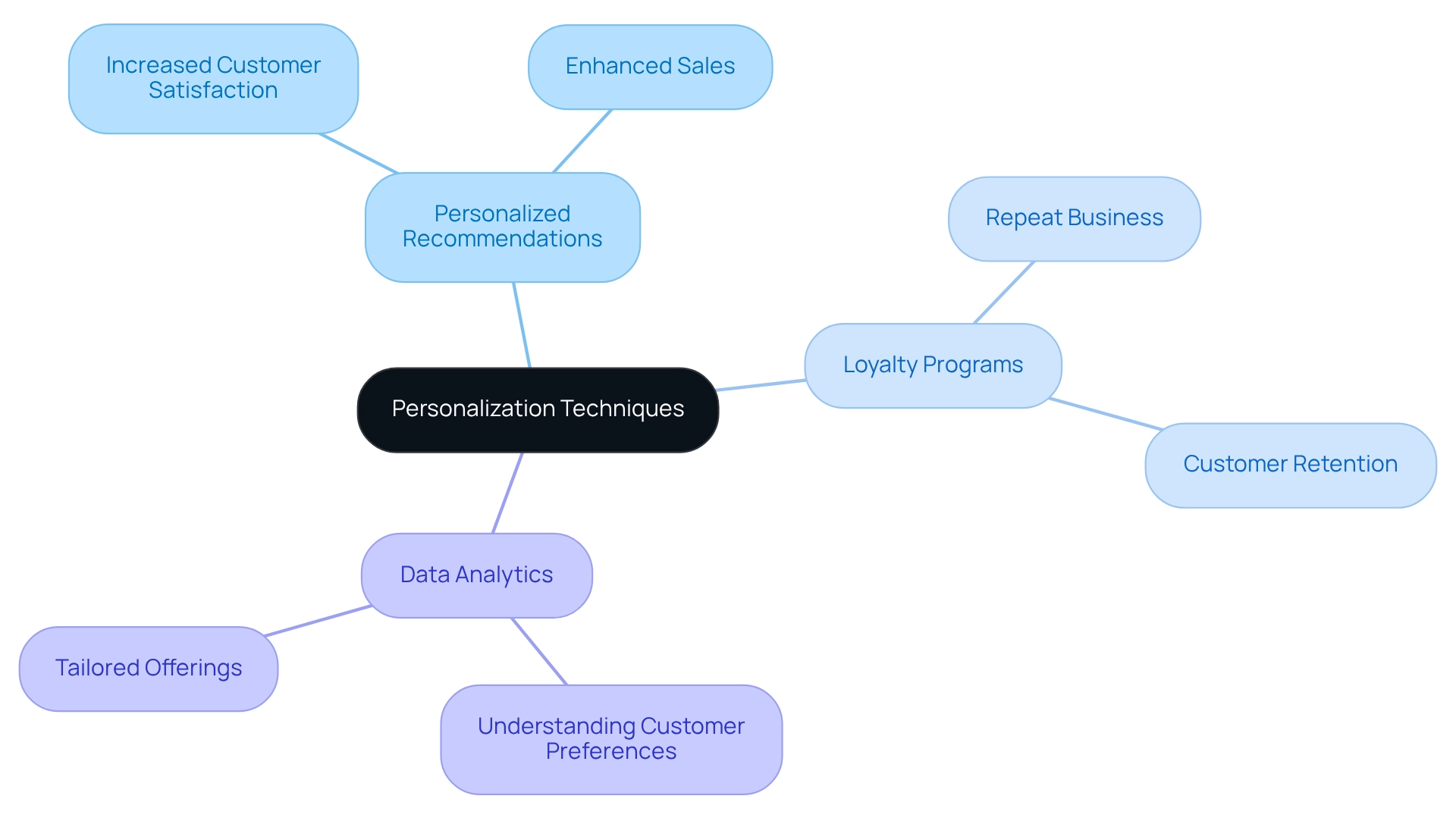
Conclusion
Understanding consumer behavior is paramount for food and beverage brands in Saudi Arabia as they navigate a competitive landscape. By leveraging insights into purchasing patterns and preferences, brands can craft targeted marketing strategies that resonate with their audience. Engaging digital marketing tactics, such as SEO and social media campaigns, not only influence purchase decisions but also enhance brand visibility in a rapidly changing market.
Moreover, incorporating sustainability messaging is essential for attracting eco-conscious consumers who prioritize environmental responsibility. Brands that communicate their commitment to sustainable practices can build trust and loyalty among their customers. Additionally, engaging consumers through social media and influencer partnerships fosters community and increases brand awareness, while personalization techniques can significantly enhance the customer experience and drive repeat business.
Ultimately, the key to thriving in Saudi Arabia’s food and beverage sector lies in adapting to modern consumer values and preferences. By embracing innovative marketing strategies and prioritizing sustainability, brands can not only meet the demands of today’s consumers but also position themselves as leaders in a dynamic market. As the landscape continues to evolve, the brands that remain agile and responsive to consumer insights will be best equipped to succeed.
Frequently Asked Questions
Why is leveraging behavioral science applications in marketing important for the food and beverage sector in Saudi Arabia?
Leveraging behavioral science applications is essential for gaining insights into buyer behavior, which allows brands to create targeted marketing strategies that resonate with consumers, ultimately leading to increased customer loyalty and sales.
How can understanding buyer preferences influence marketing strategies?
Understanding buyer preferences, such as the convenience favored by younger individuals, can lead to effective promotions for products like ready-to-eat meals or delivery services, making marketing efforts more relevant and appealing.
What tools can companies use to gain deeper insights into customer perspectives?
Companies can use tools such as surveys and focus groups to gather deeper insights into customer perspectives, enabling them to refine their messaging and product offerings more efficiently.
What impact does the application of behavioral science in marketing have on customer loyalty and sales?
Research indicates that companies utilizing behavioral science applications in their marketing strategies experience a notable rise in customer loyalty and sales, enhancing brand engagement and driving sustainable growth.
How do digital marketing strategies complement behavioral science applications in influencing purchase decisions?
Digital marketing strategies, such as SEO, pay-per-click advertising, and social media marketing, complement behavioral science by adapting advertising strategies to resonate with contemporary consumer preferences, effectively influencing purchase decisions.
What role does effective media planning and buying play in marketing?
Effective media planning and buying ensure that advertisements are strategically positioned for maximum impact, helping businesses reach their target demographics more effectively.
How can captivating content enhance customer engagement?
The production of high-quality images and videos creates captivating content that enhances visibility and fosters a deeper connection with customers, making marketing efforts more effective.
What recent trends in consumer behavior should brands in Saudi Arabia be aware of?
Recent studies indicate that meal delivery applications are gaining traction in Saudi Arabia, signaling a shift towards online ordering that brands can capitalize on through strategic marketing efforts.


